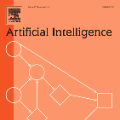Fairness is one of the most commonly identified ethical principles in existing AI guidelines, and the development of fair AI-enabled systems is required by new and emerging AI regulation. But most approaches to addressing the fairness of AI-enabled systems are limited in scope in two significant ways: their substantive content focuses on statistical measures of fairness, and they do not emphasize the need to identify and address fairness considerations across the whole AI lifecycle. Our contribution is to present an assurance framework and tool that can enable a practical and transparent method for widening the scope of fairness considerations across the AI lifecycle and move the discussion beyond mere statistical notions of fairness to consider a richer analysis in a practical and context-dependent manner. To illustrate this approach, we first describe and then apply the framework of Trustworthy and Ethical Assurance (TEA) to an AI-enabled clinical diagnostic support system (CDSS) whose purpose is to help clinicians predict the risk of developing hypertension in patients with Type 2 diabetes, a context in which several fairness considerations arise (e.g., discrimination against patient subgroups). This is supplemented by an open-source tool and a fairness considerations map to help facilitate reasoning about the fairness of AI-enabled systems in a participatory way. In short, by using a shared framework for identifying, documenting and justifying fairness considerations, and then using this deliberative exercise to structure an assurance case, research on AI fairness becomes reusable and generalizable for others in the ethical AI community and for sharing best practices for achieving fairness and equity in digital health and healthcare in particular.
翻译:暂无翻译





